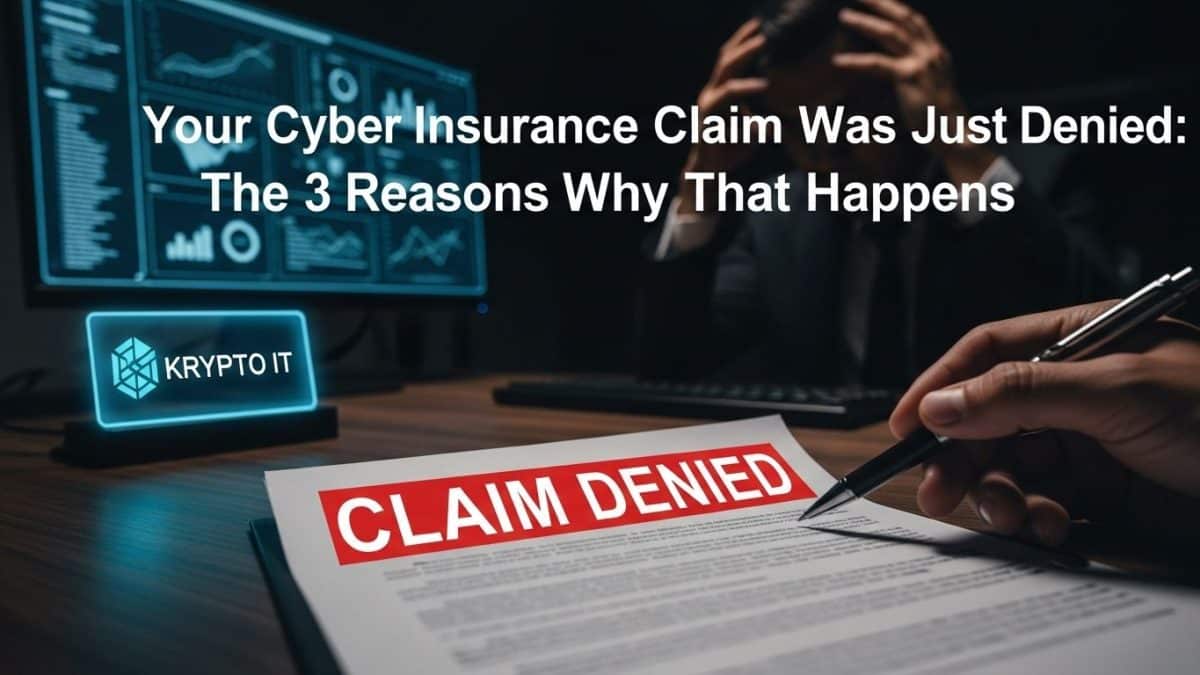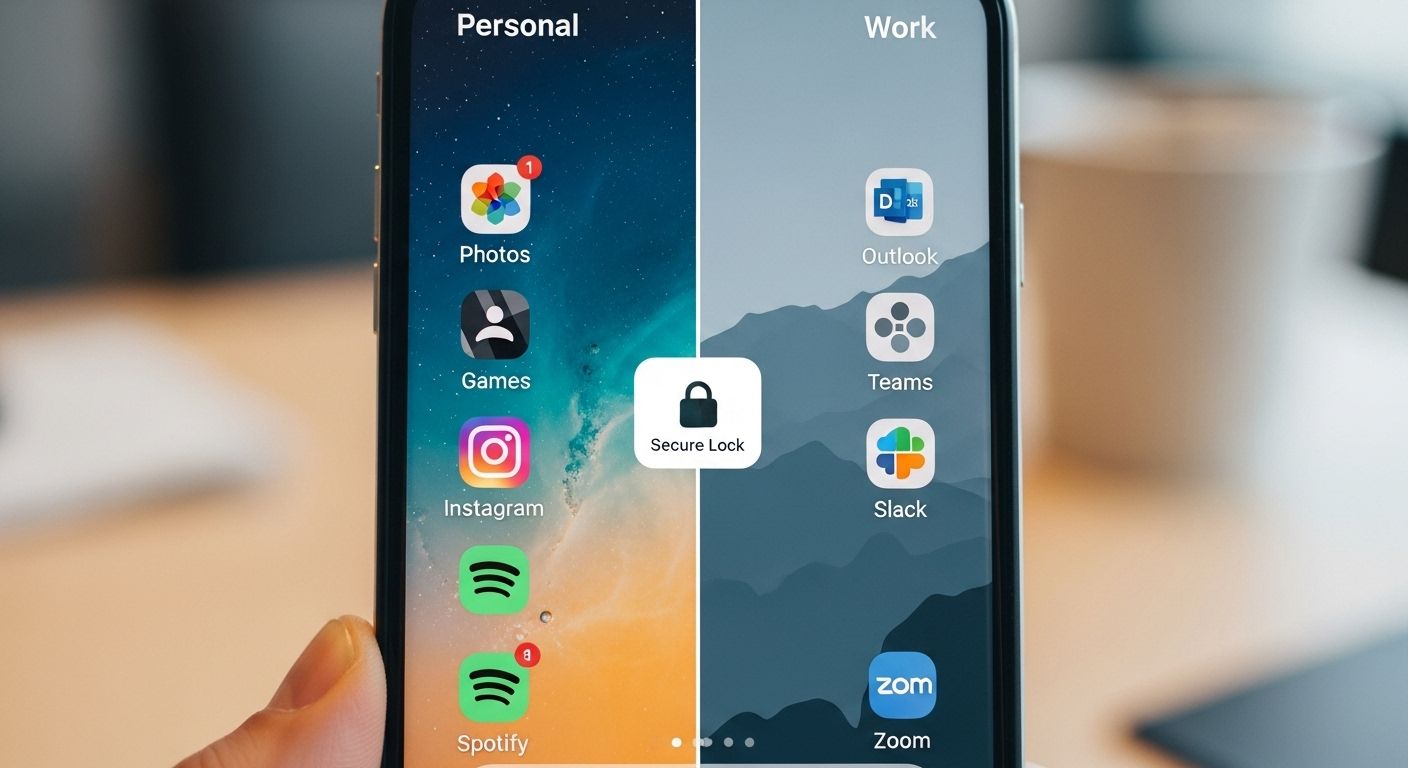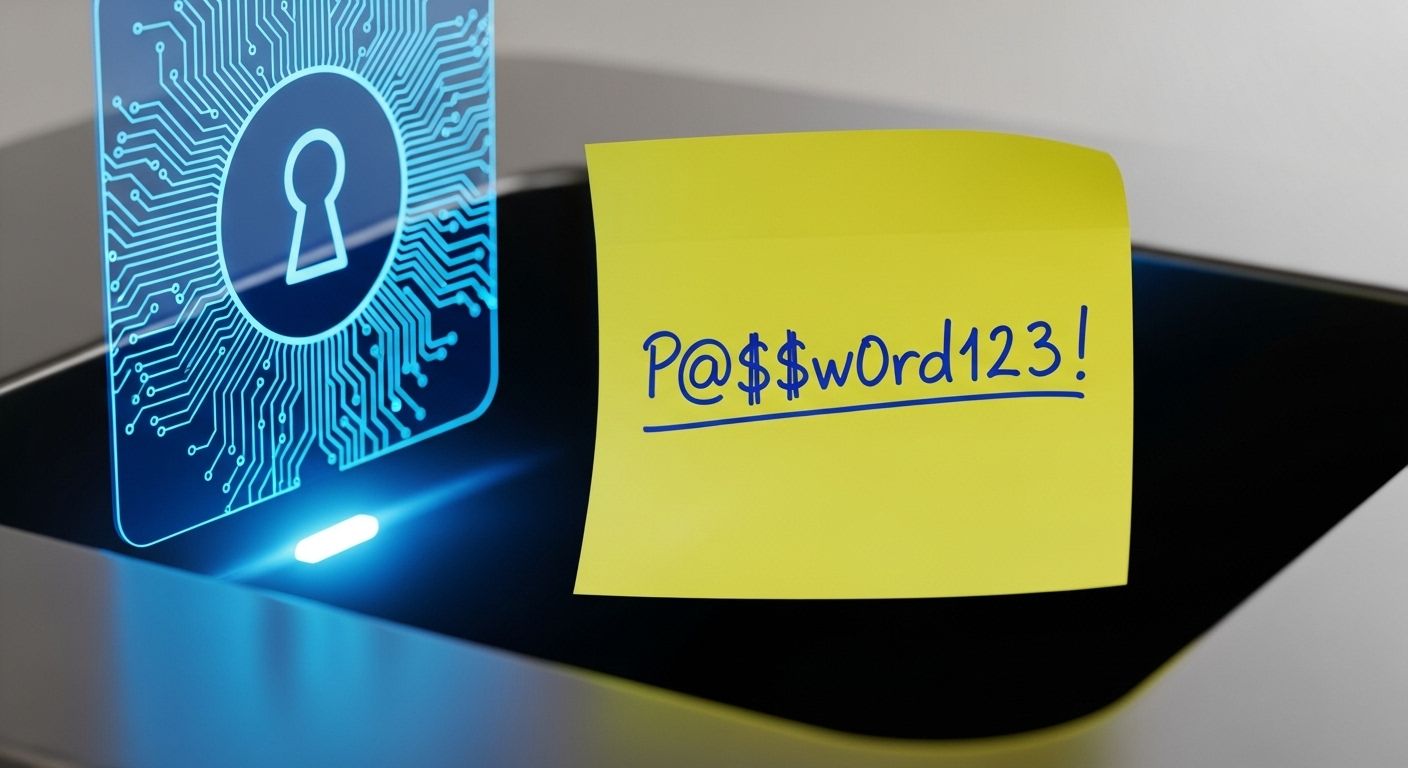
GDPR, HIPAA, and Beyond: What SMBs Need to Know About Data Compliance
October 17, 2025
The “Insider Threat”: Protecting Your Business from Within
October 20, 2025For a small to medium-sized business (SMB), suffering a cyberattack is a nightmare. But there is a scenario even worse: surviving the attack, filing a claim with your cyber insurance company, and then receiving the dreaded notification—Claim Denied.
This outcome is far more common than many SMBs realize. Cyber insurance is not like car insurance; it’s an agreement that requires you to meet specific, often technical, security standards. If your systems fall short of these standards, the insurer is legally justified in refusing to pay out.
At Krypto IT, we believe that cyber insurance is essential, but only if you take the necessary steps to make sure your policy is valid. Here are the three most common reasons why an SMB’s cyber insurance claim gets denied—and how a proactive Managed Service Provider (MSP) keeps you covered.
1. Failure to Implement “Minimum Security Requirements”
Most cyber insurance policies contain a clause listing minimum security controls that the policyholder must have in place to remain covered. If a breach occurs and forensic analysis shows you failed to deploy one of these mandatory protections, the claim can be instantly denied.
The Typical Non-Negotiables:
- Multi-Factor Authentication (MFA): This is the number one reason for denial today. If your policy mandates MFA for all remote access, email, or administrative accounts (and you didn’t have it on the compromised account), the insurer will likely walk away. They view MFA as the most basic defense against password-based attacks.
- Regular Backups: Your policy usually requires comprehensive, tested backups that follow the 3-2-1 rule (three copies of data, on two different types of media, with one copy offsite). If your backups were encrypted by the ransomware or found to be non-functional, your claim related to data recovery may be denied.
- Current Software and Patches: Insurers expect you to maintain a reasonable patching schedule. If the breach exploited a known vulnerability in an unpatched server or operating system, the denial may state you were negligent in maintaining your environment.
The Krypto IT Solution: We treat minimum security requirements as baseline standards, not options. Our security audit ensures every system, account, and remote connection meets or exceeds your policy’s technical requirements, giving you proof of due diligence.
2. Misrepresentation or Gaps in the Application
The insurance application process is highly detailed and legally binding. If you fail to accurately represent your security posture—even unintentionally—it can void the policy when you need it most.
Common Application Traps:
- Vague Answers: If the application asks, “Do you have an Incident Response Plan?” and you answer “Yes” when your plan is just a sticky note with a vendor’s phone number, that’s misrepresentation. The insurer expects a documented, tested plan.
- Technology Overstatement: Stating you use “Next-Gen Firewall” when you have an outdated consumer-grade appliance, or claiming to use an Endpoint Detection and Response (EDR) solution when you only have basic antivirus, are grounds for denial.
- Inaccurate Employee Counts: Some policies tie their coverage to the number of devices or employees. Any intentional or careless miscounting can be viewed as fraud or misrepresentation.
The insurance company is asking these questions to assess their risk. They assume the security measures you claim to have are actively working. If those measures are found to be non-existent or inadequate after an incident, the policy’s validity is in question.
The Krypto IT Solution: We work with you and your broker during the application phase. We provide accurate technical documentation and ensure that the solutions we implement (MFA, EDR, Firewall) match the exact controls required by the policy.
3. Exclusion of “Social Engineering” Fraud
This is a subtle but devastating trap. Many standard cyber insurance policies are designed to cover technical breaches (a hacker exploiting a flaw). However, they may exclude claims resulting from voluntary actions taken by your employee, often called Social Engineering Fraud or Voluntary Funds Transfer Fraud.
How Denial Happens:
- The Wire Transfer Scam: A fraudulent email perfectly mimics your CEO and instructs the accounting department to wire $50,000 to a new vendor. The employee follows the instruction. Because the employee willingly authorized the transfer, the insurer can argue that it was a business decision error, not a covered security breach.
- Gift Card Phishing: An employee buys gift cards and sends the codes to a scammer after falling for a convincing phishing email. Since the employee entered the credentials, some policies exclude the resulting loss.
The key takeaway here is that you must scrutinize your policy to see if it specifically includes coverage for social engineering and voluntary funds transfer fraud. If it doesn’t, your most likely risk—a staff member falling for a phishing scam—may not be covered.
The Krypto IT Solution: We reduce this risk through mandatory, recurring Security Awareness Training. Our programs turn your employees from the weakest link into a fortified human firewall, significantly lowering the chance of a social engineering-related loss.
Don’t Just Buy the Policy—Validate It
Cyber insurance is a necessary investment for any SMB. However, it only works if your security practices validate the policy. If you pay the premium but neglect the technical requirements, you are essentially paying for a false sense of security.
Krypto IT doesn’t just manage your technology; we manage your risk. We ensure your infrastructure meets the rigorous standards required by insurance providers, giving you the peace of mind that when disaster strikes, your coverage will be there to save your business.
Ensure your coverage is rock solid. Contact Krypto IT today for a complimentary Security Policy Compliance Check.




